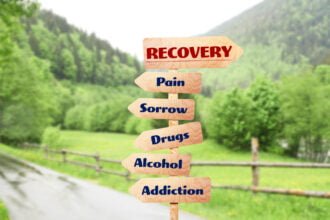Drug and substance abuse is one of the biggest problems in modern society. Unfortunately, it’s hard for most people to recognize their dependence on drugs until it’s too late. As such, we decided to make an article on the tell-tale signs of drug addiction. By identifying the problem, you are one step closer to getting rid of the dependency.
1. Drug Consumption Has Become a Priority
One of the primary signs of addiction is when you start making drugs or substances the main focus. If the drug diverts your thoughts that you can only think about seeking free time and consuming it, or even sacrificing other tasks in order to take it, chances are you’re addicted.
As addiction advances, your former hobbies, interests and activities gradually start to take a toll. So, if you are no longer spending time with your friends and love ones like before or indulge in activities you used to enjoy, it’s advisable to consider enrolling in an addiction treatment program or rehab for couples.
2. Your Health is Deteriorating
Drug and substance abuse usually comes with an array of unpleasant side effects. The effects, however, depend on the drug or substance you are abusing. For example, alcohol abuse is linked to long-term liver issues.
Substance abuse affects both your body and mind, leading to an array of mental and physical health symptoms:
a.) Mental Health- most drugs affect an individual’s mental state in one way or the other. Some manifest as increased agitation or anxiety, while others lead to severe symptoms like psychosis.
b.) Physical Health- physical effects from drug and substance use range from mild to fatal depending on the drug you use, how long, and of course, the dosage.
If you or a loved one starts to experience unpleasant changes in terms of feeling, thinking, and behaviour, rehab might be the best option. If your mental or physical symptoms become severe, consider seeking medical or psychological assistance.
One of the best things about enrolling in a structured rehabilitation program is that you’ll get both physical and mental health care and monitoring throughout the recovery process. This makes it easier to focus on staying clean, knowing that you are in the hands of professionals.
3. You Have Mental Illness
About 44 million individuals in the United States have been diagnosed with mental illness, and more than 20 million had substance use disorder. About 8 million have had both substance abuse and mental abuse. This implies that if you are addicted to a drug, you have a 40% chance or will develop a mental disorder.
People abuse drugs and substances for an array of reasons. According to the National Institute of Drug Abuse, self-medication on mental issues is one of the main contributors to the initiation and continuation of drug or substance use. Most of the drugs that alter the mind are usually used as coping mechanisms by many to alter the way they feel, think and behave. Continuing this can trigger or even make mental health symptoms worse, leading to the continued use of drugs to depress the symptoms. This becomes a cycle that never ends.
Treating co-occurring conditions is way complex compared to substance abuse alone as the underlying mental condition needs to be addressed in addition to the drug/substance use disorder.
If the underlying mental health condition is not addressed, the chances of relapse increase significantly. Dual diagnosis is essential as it gets to the root of the problem and ascertains specialized care, ensuring you or your loved one gets the assistance they need to maintain sobriety in the long haul.
4. You Take Excessive Drug/Substance Amounts to Get High
When you take a drug for the first time, you experience the highness in an intense manner as you’re not used to the effects. This is why the first experience is usually considered the best or worst experience, depending on the drug and consumption amount. However, over time, your body starts to adapt through a biological process, best referred to as tolerance. As tolerance increases, your body calls for higher amounts and more frequent to experience the same effects.
If you give in and take higher amounts of an especially dangerous substance, your body might reach a point where it’s unable to handle the drug and leads to extremely undesired effects. A good example is heroin. It’s a depressant, and so, consuming large amounts can result to slow breathing and pulse rate. This is fatal and can easily lead to death.
Your life is valuable and not worth losing your life over. So, if you notice you have been using drugs or substances in high quantities and more regularly, you are on the verge of overdose and need to consult a professional as soon as possible.
5. Tried to Quit on Your Own But Failed
Addiction is a condition that’s marked by periods of recovery and relapse. Whenever you go back to using a substance, abstinence recommitment is needed in order to get back to normal.
Addicted individuals try different things to terminate their use. According to SAMSHA, outpatient treatment and self-help groups are the most common. However, these solutions might lack the intensity needed to address your needs and history with addiction.
If any or all the points above check your boxes, it’s time to seek help from a professional.










